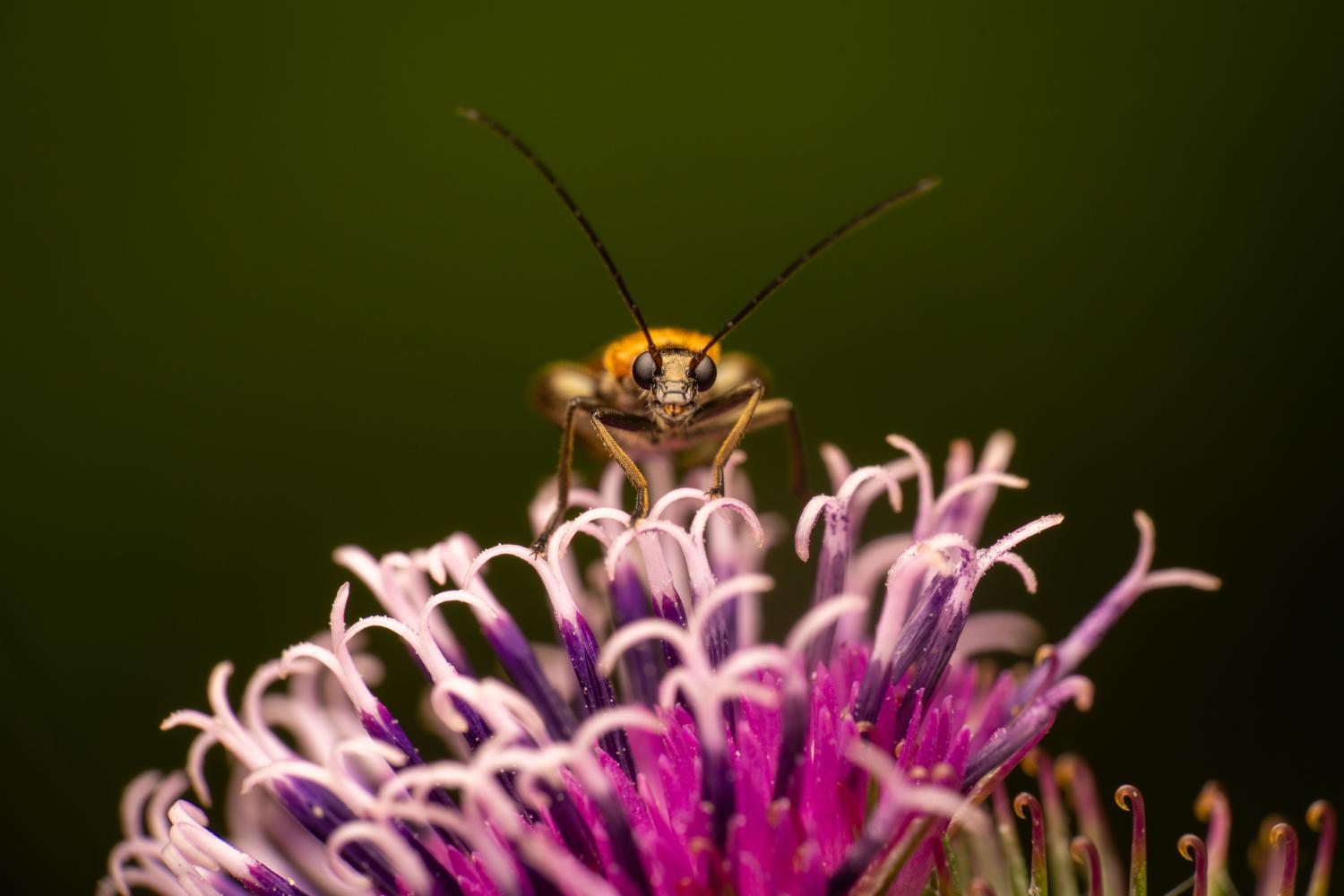Spiny Shield Bug
Lat. “Picromerus bidens“
species
of family
“Stink Bugs“
1 species
The spiny shieldbug (Picromerus bidens) is a predatory insect commonly found in the Palaearctic region. It has a wide distribution, ranging from North Africa to China. The bugs can also be found in North America, where they have been introduced. They prefer habitats such as deciduous forests, heathland, gardens, and meadows. The bugs are characterized by their distinctive appearance, with a thick rostrum and thorn-like projections on the sides of their pronotum. They are predatory, feeding on the larvae of other insects, as well as sucking sap from plants. The female lays eggs on tree trunks and leaves, and the nymphs go through several molts before reaching adulthood. The bugs usually overwinter as eggs.
Distribution and habitat
This species has a wide distribution in the Palaearctic, from 64°N to North Africa and from the British Isles to China. It has also been introduced, probably more than once, to North America, where it has been recorded from more than 180 sites.
Habitat
These bugs prefer deciduous and mixed forests, heathland, gardens, chalk downland and damp flower-rich meadows.
Description
Picromerus bidens is a large (12 to 13.5 mm long) and distinctive predatory shieldbug. It shows a thick rostrum directed away from head. Body colour is quite variable, generally light to dark brown or bluish, with red-brown antennae and legs and two unmistakable thorn-like brown projections on the sides of the pronotum (hence the species name bidens, meaning “with two teeth”). Front femurs are armed with a ventral spine distally. The early instar nymphs are commonly reddish, while the final instar nymphs are greyish black, with banded antennae and legs.
Biology
Both adults and nymphs of the spiny shieldbugs are predatory, feeding on the larvae of other insects, especially on leaf bugs, beetles, aphids and caterpillars. The choice of the prey depend on the season and availability of food. However both adults and nymphs also suck sap from plants. The female lays eggs on tree trunks and leaves. In the spring the larvae hatch, growing to the adult bugs after five moultings. Nymphs become adults by July or August and adults can be found until November. This species usually overwinters as eggs and less frequently as nymphs.
Bibliography
Dmitry L. Musolin, Aida H. Saulich: Summer dormancy ensures univoltinism in the predatory bug Picromerus bidens. Entomologia Experimentalis et Applicata, 95, 3, S. 259–267, 2000 doi:10.1046/j.1570-7458.2000.00665.x Kamran Mahdian, Luc Tirry & Patrick De Clercq: Development of the predatory pentatomid Picromerus bidens (L.) at various constant temperatures. Belg. J. Zool., 138, 2, S. 135–139, 2008 Kamran Mahdian, Luc Tirry & Patrick De Clercq: Functional response of Picromerus bidens: effects of host plant. Journal of Applied Entomology, 131, 3, S. 160–164, 2007 doi:10.1111/j.1439-0418.2006.01124.x Kamran Mahdian, Thomas Van Leeuwen, Luc Tirry and Patrick De Clercq: Susceptibility of the predatory stinkbug Picromerus bidens to selected insecticides. BioControl, 52, 6, S. 765–774, 2007 doi:10.1007/s10526-007-9075-3 Martin Konvicka, Vladimir Hula und Zdenek Fric: Picromerus bidens (Heteroptera: Pentatomidae) as predator of the Checkerspot Euphydryas aurinia (Lepidoptera: Nymphalidae). Entomologica Fennica, 16, S. 233–236, 2005 PDF T. R. E. Southwood und D. Leston: Land and Water Bugs of the British Isles. Frederick Warne & Co. Ltd., 1959
External links
Larvae at Treknature Natur-in-nrw
Ancestry Graph
Further Information
Copyright

This article uses material from the Wikipedia article Picromerus bidens the free encyclopedia Wikipedia which is released under Creative Commons Attribution-ShareAlike 4.0 International License). On Wikipedia a list of authors is available.
